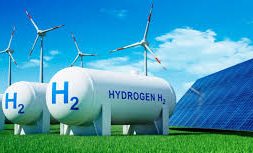
NEW DELHI : State-owned Oil and Natural Gas Corporation (ONGC) has cut carbon emission intensity of its operations by over 12 per cent in the last five years as part of making its operations more sustainable, chairman and managing director Shashi Shanker said.
Shanker, speaking at the 15th National Convention of Global Compact Network India (GCNI), called for deeper collaborative tie-ups between all stakeholders to help the nation navigate through the unprecedented and changing times.
“On ONGC’s efforts towards sustainable growth, Shanker said that over the last five years, the energy Maharatna has reduced its carbon emission intensity (that is, tonnes of carbon di-oxide emitted per barrel of oil produced) by more than 12 per cent,” a company statement said here.
ONGC is India’s largest oil and gas producer.
He called the platform to “engage and contribute to achieving sustainable development goals (SDGs) for people, planet, progress and peace.”
He is also the President of GCNI.
Held for the first time through virtual medium, the two-day National Convention of GCNI on February 4-5 was themed ‘Raising the SDG Ambition – Pathways for Sustainable Recovery and Growth’.
Emphasizing the role of GCNI, which was founded in 2003, Shanker noted that the organization has spread the message of the United Nations Global Compact (UNGC) to corporate India and has created a platform that offers a bouquet of services to its members to facilitate better understanding and imbibing the 10 principles of SDGs into their work culture and corporate governance structures.
“GCNI is the only agency in India driving all 17 SDGs chartered by the United Nations. In the past few months, GCNI has taken to the online platform and worked tirelessly towards achieving the SDGs as we inch closer to the set target of 2030,” he added.
He cited Prime Minister Narendra Modi’s motto of ‘Sabka Saath, Sabka Vikaas, Sabka Vishwaas’ resonating with the core SDG principle of leaving no one behind.
Showcasing India’s progress on the sustainable development front, Shanker referred to the nation’s narrative ‘Satat Bharat – Sanatan Bharat’ to highlight the nation’s commitment towards a sustainable future.
He noted that economic growth of any nation requires various forms of energy, which should be accessible, affordable and clean.
“The country’s climate action strategies emphasize clean and efficient energy systems, a resilient urban infrastructure and a planned eco-restoration, among others. Today India occupies fifth position in overall installed renewable energy capacity,” he said.











